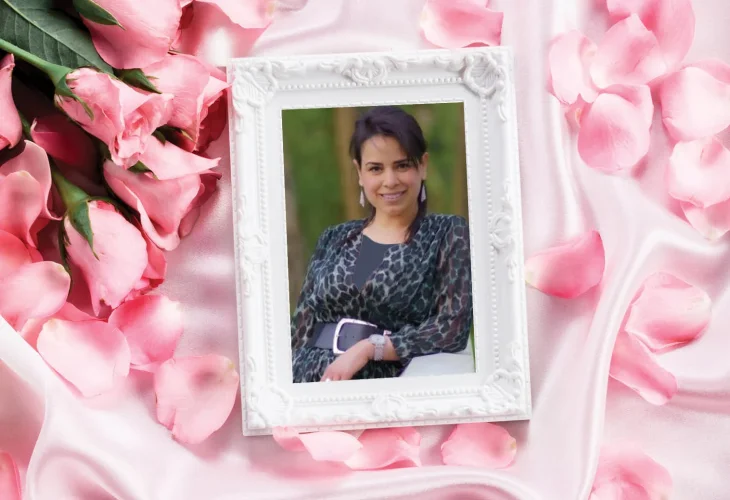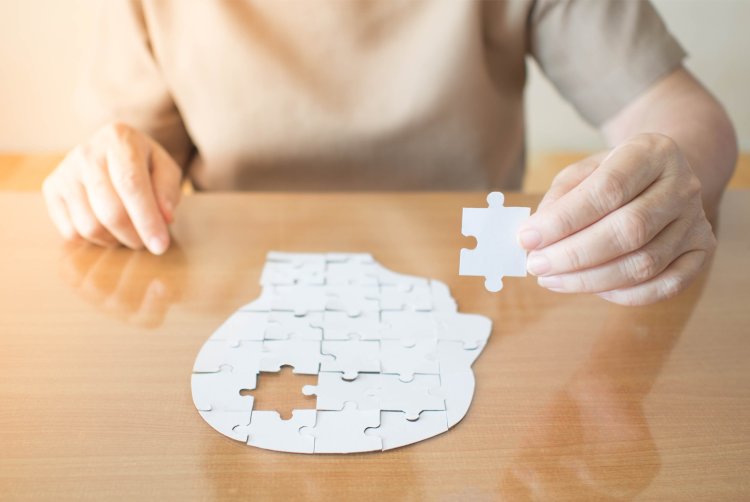Helping Those with Intellectual Disabilities Understand Grief
Hila Tamar Edri has developed an innovative project that provides tools to cope with loss and uncertainty for people with intellectual disabilities.
 Hila Tamar Edri
Hila Tamar EdriWhat do people with intellectual disabilities experience when they hear that a loved one was murdered in Nova, or kidnapped during Simchat Torah? How do we even begin to explain a funeral or a shiva to them?
Take Yael Kedar from Kibbutz Be'eri, a 41-year-old woman with a mild intellectual disability, who was at her parents' home when both of them, Ofra and Sami, were murdered on Simchat Torah. Over the past year, she has been learning step by step how to cope with this impossible situation and how to navigate her way forward.
Similarly, there's Yaniv, a young man living in a care home for people with special needs in Sderot. When the war with Hamas broke out, he found himself almost alone in his apartment (due to the holiday staffing shortage), trying to save himself from the terrorists on the roof while helping save his friends, some of whom are functionally disabled and wheelchair-bound.
Did anyone even consider what they and many others with special needs are going through in these trying times? Did anyone try to take care of them?
A Matter of Need
This urgent question, which became ever so pressing since the war erupted, had long occupied social worker Hila Tamar Edri. "I started my professional journey as a social worker in an adult care facility for people with disabilities," she explains, "and during my work, I noticed an intriguing phenomenon – people with intellectual disabilities often reach quite old ages. While it was once considered that a person with Down syndrome might live until 50, I’ve already met a resident who reached 87 and outlived all his siblings, necessitating the appointment of his niece as his guardian.
 (Photo: Shutterstock)
(Photo: Shutterstock)"There are many such cases, and as a professional, I began to realize that this requires us as caregivers to prepare for situations we haven't encountered before, like dementia or Parkinson's in these populations, and even simple phenomena like skin spots, wrinkles, and white hair – these are symptoms that may seem natural to the general population as part of life, but an intellectually disabled person may be frightened by them. From their understanding, which might be like that of a young child, these phenomena indicate impending death, or they simply don’t understand the changes happening to them. It is said that people with intellectual disabilities age about ten years earlier than the general population, and considering that, it's crucial for the professionals accompanying them to be attuned to their needs."
Yet alongside the aging issue, Edri also came across another phenomenon: intellectually disabled individuals facing the death and loss of siblings and parents, also a result of increased life expectancy. "In Israel, there is no shortage of knowledge on the subject of loss. On the contrary, it is one of the leading countries in research on these topics," she emphasizes, "but the niche of people with disabilities has never been given a platform, and I decided to take the initiative myself."
"The Harsh News Project"
Edri worked in the field for years, diligently visiting hospitals to instruct medical staff on how to treat older adults with intellectual disabilities who are hospitalized, and how to make their treatment more accessible. In those same days, the COVID-19 pandemic struck, and exposure to death cases rose alarmingly. "Some people didn’t leave their rooms in the care home for ten months," she recalls, "and during all that time, they were fed information solely from the media, and one can imagine what they went through when they heard about an uncle who fell ill and died, or another family member who passed away. So many stories of loss and tragedies, without any appropriate accessibility. I didn’t have a way to help, but I nevertheless tried to act within the system – to provide the necessary training and convey the correct messages, simply to help them from afar as much as possible. And along with this, I fully understood that this is the subject I intend to dedicate my professional life to."
This realization led Edri to decide that 'the loss of a loved one' would be the topic she would research as part of her master's degree work. "As part of the research, I flew to the Netherlands to study the subject deeply. The Netherlands is considered one of the most developed countries in the framework it offers for people with intellectual disabilities. For nine months, I lived there, and it was precisely when I saw how they approach the subject through Christian eyes that I understood the 'advantages' that Judaism offers for mourning and grieving rituals, where the funeral is held the same day, and during the first year of mourning, we gradually handle seven days of mourning, the first month, and then eleven months, to allow for comprehending the detachment process from the departed, while also allowing those remaining here to rebuild themselves.
"But the question that didn’t let go of me is – 'what role do individuals with disabilities have in all these ceremonies, which are often not accessible or explained?' Sometimes people tend to hide from a person with an intellectual disability the fact that their grandparent passed away, because 'why hurt them? They won’t understand anyway,' and for years they are told the wrong information: 'Granddad is sick, he’s in the hospital,' or they are prevented from attending the funeral, because 'what’s the point? It will only sadden them,' without realizing there's a way to do this appropriately, and it’s not that complicated. One just needs to receive some brief instruction and think in advance about how to do this. Of course, professional guidance is essential afterwards, but at the moment of loss, anyone can assist the special individual, whether it's a family member, an officer, or someone without relevant training."
Providing Practical Tools
During Simchat Torah of 5784, when the first sirens sounded, Edri decided that she would take her research a step further. Immediately after the holiday, as the magnitude of the disaster began to be understood, she sat down and started writing all her conclusions and guidance, focusing on the most relevant questions that arise: 'How to inform someone with an intellectual disability that their father fell in battle?' or 'How to explain to them that their uncle defended the settlement and was killed?' and 'What do we tell someone when a family member has been kidnapped, when we ourselves can’t process or understand what happened?'
"Within a day and a half, I had already compiled an organized document on the topic and then contacted Dr. Dalia Nissim, an amazing woman I met during one of my lectures, who also deals with aging among people with disabilities. The document went through reviews by many members of the professional staff at Bar-Ilan University, including my supervisor – Dr. Yael Karni-Vizra, who guided me in writing the thesis and even helped me recruit other faculty members who contributed their professional experience. Eventually, I reached 'The Shalem Fund', where they funded the project, which received its name 'The Harsh News Project'."
Practically, Edri notes that the project includes a protocol for casualty officers and five different therapeutic tools, including an instructional video for professionals on how to explain to a special needs person what a funeral is, as well as a video for the special individuals themselves, explaining what a funeral is, a glossary of terms explaining concepts of death, kidnapping, and captivity, and more.
Currently, these tools find their place in many care homes for people with disabilities, among professionals, and in resilience centers established country-wide – from the north to the south. "We have all been facing challenges in the past year that we never imagined we would be exposed to," Edri explains, "and as we all teach ourselves how to cope and try to acquire tools to help us in such situations, there is undoubtedly a need to provide the same opportunity to people with disabilities."
To conclude, she shares a particularly moving story: "During the war, I accompanied Yaniv, a person with a mild intellectual disability who was in Sderot care home for people with disabilities during the Hamas attack. When terrorists broke into the city, he was with other residents and just one counselor, and with incredible bravery, he succeeded in saving himself and his friends, some of whom have severe physical disabilities. When I spoke with him afterward, he found it very hard to digest what he had experienced, and especially found it difficult to let go of his original plan, for weeks before he organized with guys from the city to come dance with him and his friends with the Torah scroll. He was so looking forward to it, and suddenly it was all cut short and became impossible.
"I worked with him during the period he stayed with his friends in a care home with alternate staff in Dimona, and one day we were informed that they could return to Sderot. At that moment, the thought crossed my mind that we must give him an alternate experience, and the opportunity to dance with the Torah scroll as he dreamed, before he returned to the city. We moved mountains and ultimately succeeded in bringing the deputy city rabbi, Rabbi Turjeman himself, who brought him so much joy and allowed him to dance with the Torah scroll.
"He was so happy, and afterward, I was told he boarded the bus the next day returning the residents to Sderot, leading all his friends and even comforting those who expressed concerns and were reluctant to return to the city. He provided them with words of strength and faith in a way that best suited their capacity, because that’s exactly the point – to provide this important accompaniment, no special degree or training is needed, only attention and sensitivity. One simply has to want to and make an effort. The rest will come by itself."

